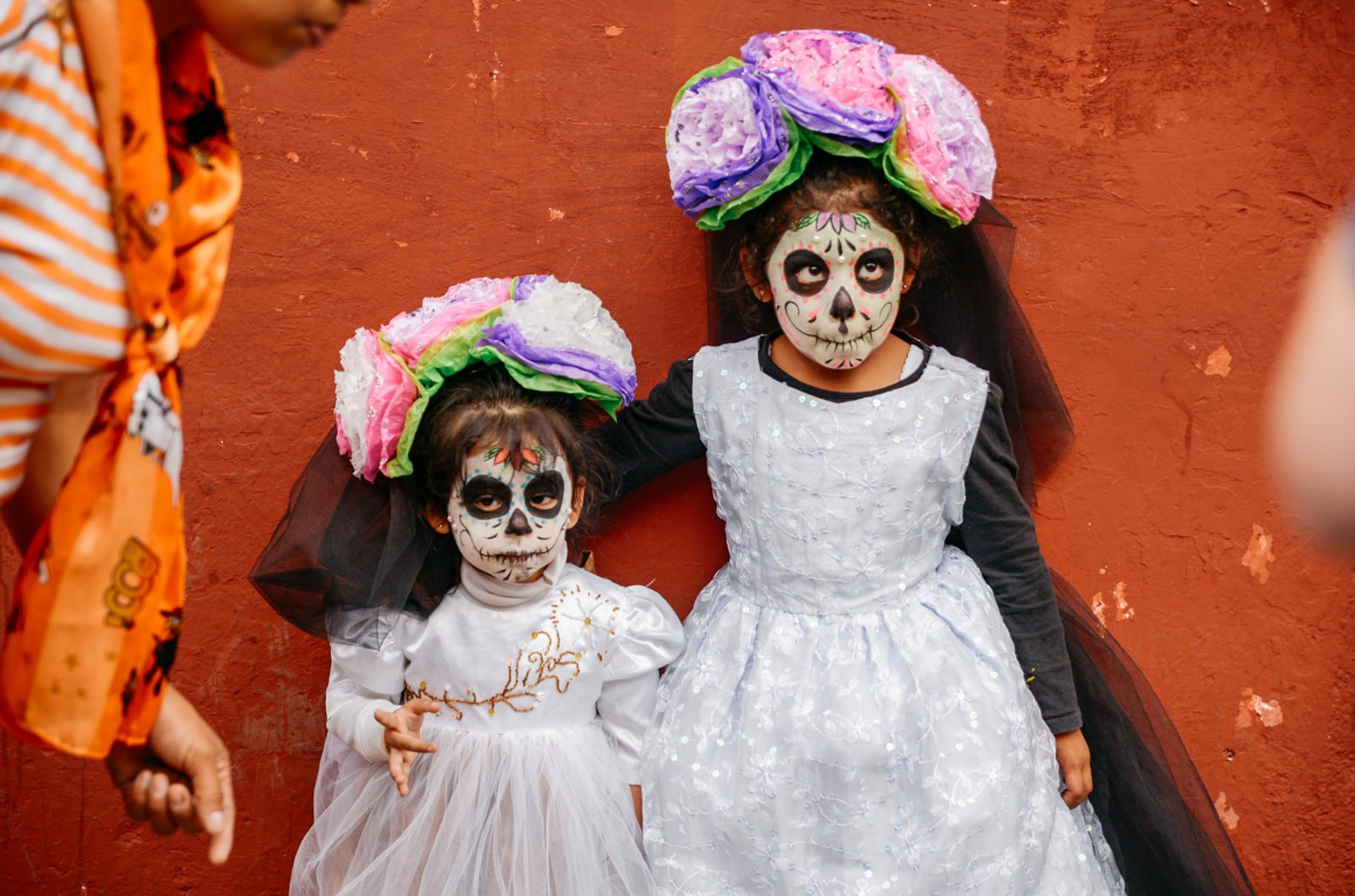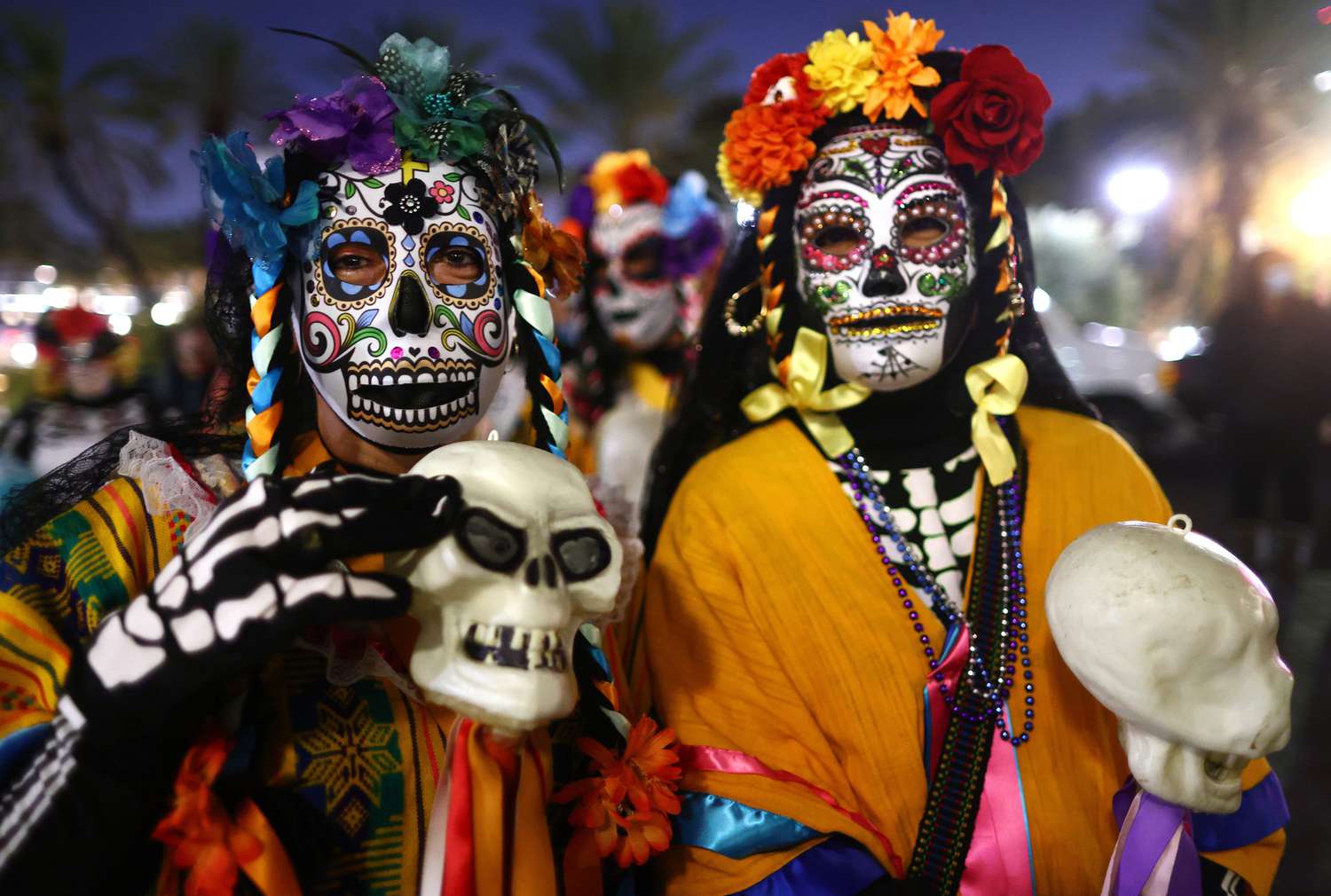So, have you ever heard of Mexico’s Day of the Dead? It’s a fascinating cultural celebration that takes place every year, and trust me, you’re in for a treat as we delve into the details of this unique event! In this article, we’ll explore the cultural significance of Mexico’s Day of the Dead and uncover the fascinating traditions and customs that make this celebration so special.
Now, let me tell you, Mexico’s Day of the Dead is not your typical Halloween. It’s a multi-day holiday that honors and remembers loved ones who have passed away. The belief is that during this time, the spirits of the departed return to the earthly realm to visit their families, and it’s all about celebrating their lives. There are numerous customs and traditions associated with this holiday, including creating colorful altars adorned with photos, flowers, and the favorite food and drinks of the deceased. Families also gather in cemeteries to clean and decorate the graves, and they often participate in parades and festivals that showcase elaborate costumes and skull face paintings.
But hey, I don’t want to give away all the details just yet! In the rest of the article, we’ll explore the history and origins of Mexico’s Day of the Dead, as well as the modern-day celebrations that take place throughout the country. We’ll dive into the vibrant atmosphere, the delicious traditional foods, and the meaningful rituals that make this holiday so culturally significant. So, stick around and get ready to learn more about Mexico’s Day of the Dead – a celebration like no other!

Overview of Mexico’s Day of the Dead
Mexico’s Day of the Dead, or Día de los Muertos, is a vibrant and deeply-rooted tradition that holds immense cultural significance for Mexican people. This sacred holiday is celebrated annually from October 31st to November 2nd, and it is a time for families to come together and honor their deceased loved ones.
Throughout this article, we will delve into the origin and history of the Day of the Dead, its cultural significance, and the various traditions and customs associated with the holiday. We will also explore the symbolism and meanings behind key elements such as marigolds, calacas and calaveras (skeletons and skulls), altars and ofrendas, and the iconic Pan de Muerto (Bread of the Dead).
Furthermore, we will discuss the preparations and festivities involved in the Day of the Dead celebrations, including cleaning and decorating gravesites, the role of La Catrina, visiting cemeteries, and partaking in music, dance, and processions. We will also examine the importance of family and community in this holiday, as well as the religious and spiritual aspects that are intertwined with the traditions.
Regional variations in the Day of the Dead celebrations across Mexican states will also be explored, highlighting the distinctive elements in Oaxaca, Michoacán, and Yucatán, as well as the influence of local indigenous cultures. Additionally, we will discuss the artistic and creative expressions that have emerged from this holiday, including its presence in literature, the works of famous artists, and the ever-popular tradition of sugar skulls.
It is important to acknowledge the growing commercialization and globalization of the Day of the Dead, and the impact this has had on the holiday. We will discuss the criticisms surrounding cultural appropriation and commodification, as well as the effects of tourism and commercial ventures on the authenticity of the celebrations.
The educational and historical importance of the Day of the Dead will also be examined, focusing on its integration into Mexican education, the transmission of significance to younger generations, and the preservation and documentation of local traditions. We will also explore the social and psychological significance of this holiday, including its role in coping with grief and loss, creating a sense of belonging and identity, and promoting dialogue about death and mortality.
Like any cultural phenomenon, the Day of the Dead is not exempt from criticism and controversies. We will address misconceptions and stereotypes surrounding the holiday, conflicts between traditional and modern interpretations, and the ongoing debate over cultural appropriation and respect. Additionally, we will discuss political and religious opposition to the holiday and its implications.
Looking towards the future, we will consider the challenges of preserving and promoting indigenous traditions while adapting to evolving cultural and social dynamics. We will reflect on the enduring cultural significance of the Day of the Dead and appreciate the rich traditions and practices that have shaped Mexican identity and collective memory. Lastly, we will eagerly anticipate future celebrations and explorations of this cherished holiday.
In conclusion, the Day of the Dead is a multifaceted and deeply meaningful holiday that reflects Mexico’s rich cultural heritage. It serves as a time to remember and honor ancestors, celebrate the beauty and fragility of life, and contemplate the afterlife. Through its various traditions, practices, and symbolism, the Day of the Dead offers a profound insight into Mexican history, art, and spirituality. As you delve into the exploration of this holiday, be prepared to be captivated by its beauty, power, and lasting impact on the Mexican people and their cultural identity.
